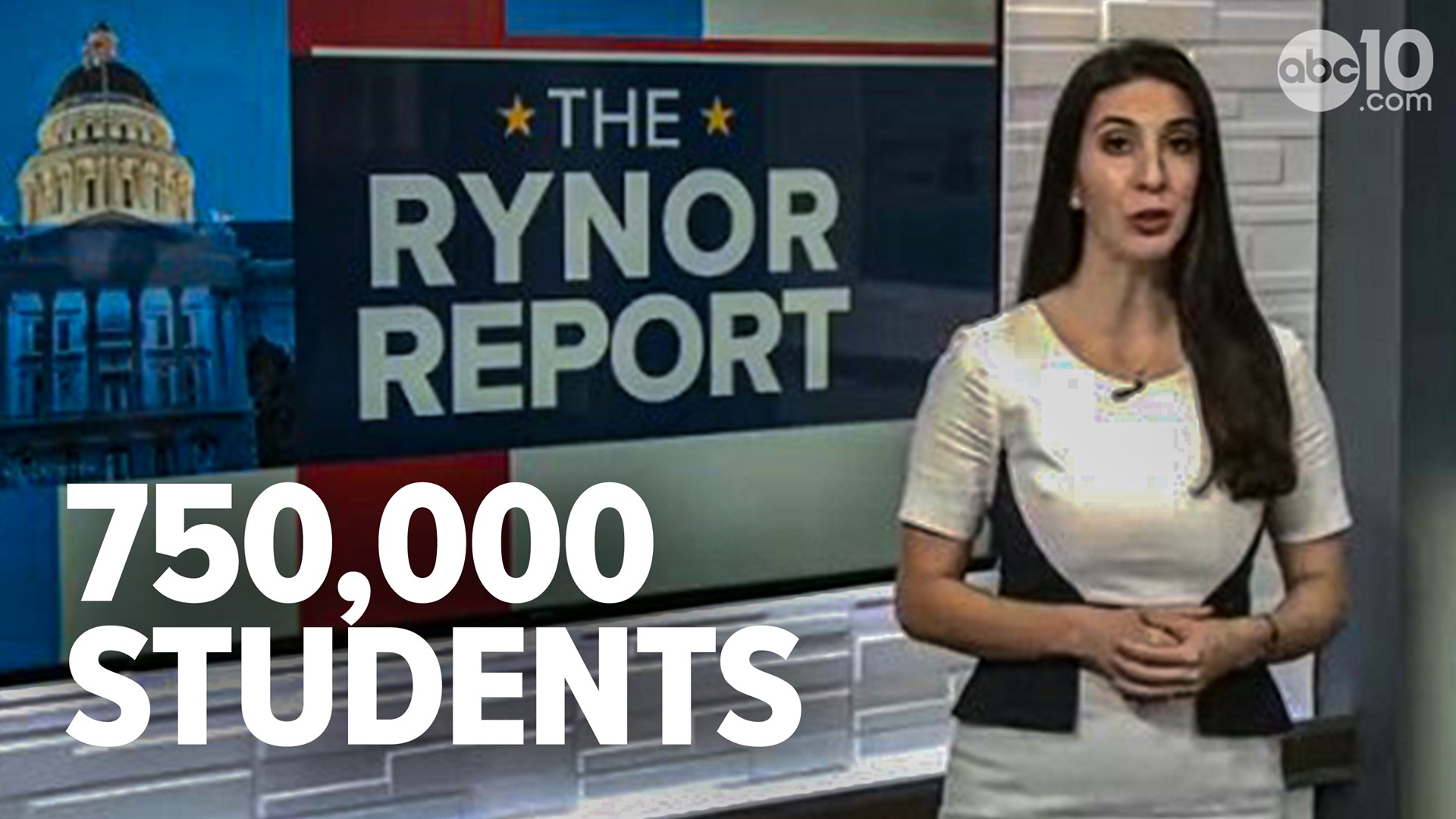SACRAMENTO, Calif. — If a student owes their private or public university money, the school can withhold their degree or prevent the student from enrolling in classes, but a bill in the legislature would end that practice.
Marlenee Blas is a third year law student at UC Berkeley. As a student regent, she represents students across the state.
"The pulse is that students are experiencing hardships, whether it's access to basic needs like food, but the other biggest challenge is housing," she said.
Unlike student loans, which is money borrowed from the government, institutional debt is when a student owes money directly to the school. This is along the lines of library or parking fees or even withdrawing from a class.
“No student should be barred from persisting or completing their higher education simply because they owe an institutional debt,” said Samantha Seng with NextGen California.
Assemblymember Blanca Pacheco introduced a bill that would prohibit California schools from withholding degrees or certificates from students if they owe money.
“With the current enrollment crisis, it is important that we help students with removing barriers in attaining their higher education goals and understand what else we must do to address the student debt crisis, including institutional debt across California,” said Pacheco.
She says more than 750,000 low-income current and past students owe more than $390 million.
The bill also bans schools from placing students with third party debt collectors.
“If students get sent to debt collections, that impacts their credit score and that impacts their ability to rent a place. So this is such a pressing issue across california, but more importantly, that (is) impacting... the students,” said Blas.
Republican Assemblymember Bill Essayli who said he believes the bill is misplacing it’s focus on relieving people of the consequences of their debt.
"I don't think it's ever good to basically give people a pass and not be responsible for debt that they took on," said Essayli. "I think really where the focus needs to be in this conversation, both state and nationally, is the cost of education and tuition is way too high, and we need to be looking at how much these colleges are charging. Why are they charging so much?"
The bill was referred to the committee of higher education, but no hearing date has been set yet.
WATCH ALSO:



















